#nationality
Photo

What nationality is Hayden Christensen?
380 notes
·
View notes
Text
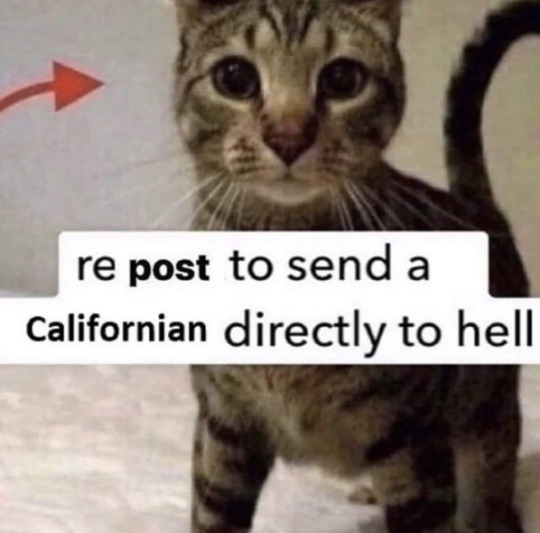
repost to send a californian directly to hell
3K notes
·
View notes
Photo

Slaves escaped frequently within the first generation of their arrival from Africa and often preserved their African languages and much of their culture and religion. African traditions included such things as the use of certain medicinal herbs together with special drums and dances when the herbs are administered to a sick person. Other African healing traditions and rites have survived through the centuries.
The jungles around the Caribbean Sea offered food, shelter, and isolation for the escaped slaves. Maroons sustained themselves by growing vegetables and hunting. Their survival depended upon their cultures, and their military abilities, using guerrilla tactics and heavily fortified dwellings involving traps and diversions. Some defined leaving the community as desertion and therefore punishable by death. They also originally raided plantations. During these attacks, the maroons would burn crops, steal livestock and tools, kill slavemasters, and invite other slaves to join their communities. Individual groups of maroons often allied themselves with the local indigenous tribes and occasionally assimilated into these populations. Maroons played an important role in the histories of Brazil, Suriname, Puerto Rico, Haiti, Dominican Republic, Cuba, and Jamaica.
There is much variety among maroon cultural groups because of differences in history, geography, African nationality, and the culture of indigenous people throughout the Western Hemisphere.
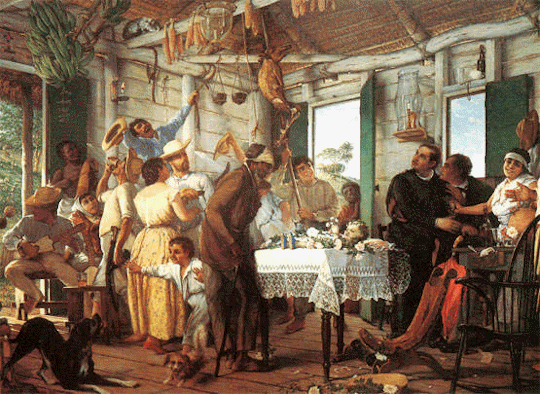
#african#western hemisphere#nationality#indigenous#slavemasters#taino#dominican republic#maroons#puerto rico#haiti#jamaica#military#kemetic dreams#africans#native american#native americans#caucasian#asian#asians#asian americans#african language#african traditional medicine
201 notes
·
View notes
Text
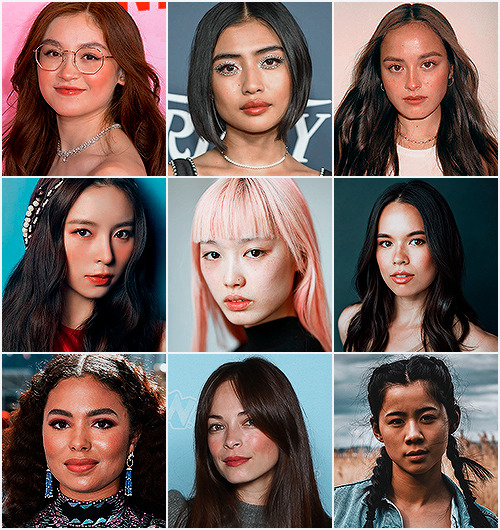
[ FEMALE FCS OF CHINESE DESCENT ] - Part 1
Anna Cathcart (2003) - Born in Canada | Chinese and Irish descent
Brianne Tju (1998) - Born in USA | Chinese and Indonesian descent
Chase Sui Wonders (1996) - Born in USA | Chinese (father's side) and European (mother's side)
Elkie Chong (1998) - Born in Hong Kong | Chinese descent
Fernanda Ly (1995) - Born in Australia | Chinese, and possibly, Vietnamese descent
Genevieve Kang (1992) - Born in Canada | Chinese (father's side) and Portuguese (mother's side) descent
Jessica Sula (1994) - Born in Wales | Chinese, Afro-Trinidadian (mother's side), Estonian and German (father's side) descent
Kristin Kreuk (1982) - Born in Canada | Chinese [Born in Indonesia] (mothe's side), Chinese-Jamaican (maternal grandmother's side) and Dutch (father's side) descent
Leah Lewis (1996) - Born in China | Chinese descent
#chinese fc#chinese female#chinese fcs#chinese female fcs#chinese female fc#ethnicity#ethnicity fc#nationality#nationality fc#anna cathcart#brianne tju#chase sui wonders#elkie chong#fernanda ly#genevieve kang#jessica sula#kristin kreuk#leah lewis
31 notes
·
View notes
Text
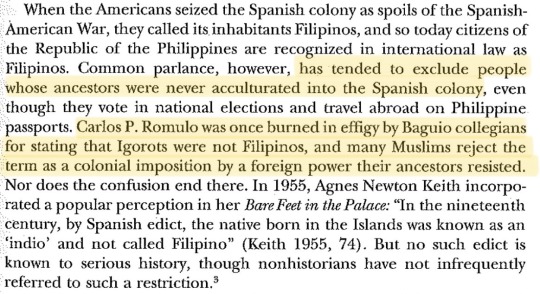
Barangay: Sixteenth-Century Philippine Culture and Society (1994) by William Henry Scott
41 notes
·
View notes
Text
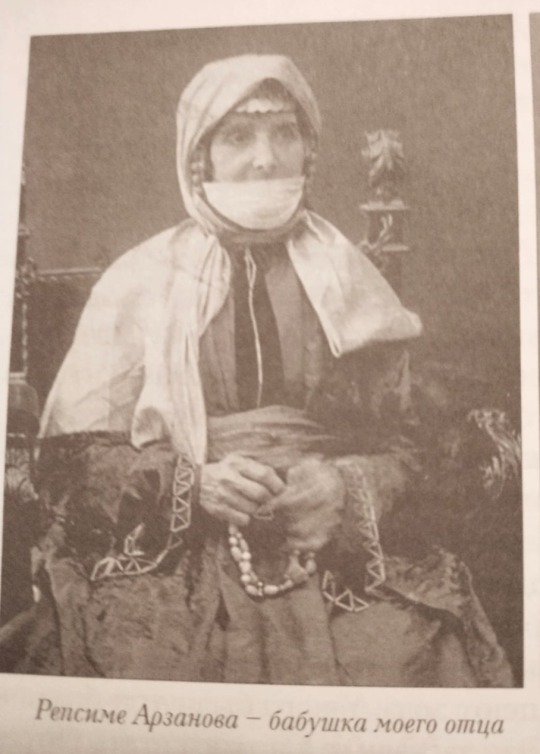
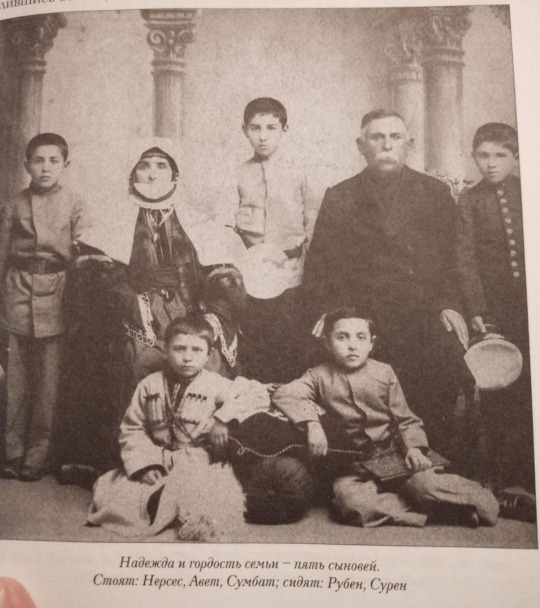
a photograph of my great-great-great grandmother, Rapsime Arzanova, and her husband with their 5 sons. those that stand: Nerses, Avet and Sumbat (my great-grandfather). Those who are sitting: Ruben and Suren.
#art#assets#русский художник#illustration#family history#history#caucasus#armenians#armenia#Armenian family#old photos#pedigree#Caucasian culture#Armenian culture#nation#nationality#National clothes#folk costume#folk clothes
32 notes
·
View notes
Text
We ask your questions so you don’t have to! Submit your questions to have them posted anonymously as polls.
#polls#incognito polls#tumblr polls#anonymous#questions#tumblr users#demographics#nationality#ethnicity#polls about the world
52 notes
·
View notes
Text










#old web#geocities#y2k#flashing gif#tw flickering#blinkies#random blinkies#nationality#ethnicity#webcore#poland#polish#scotland#scottish#japan#japanese#welsh#wales#america#american#belize#belizean#guam#guamanian#hungary#hungarian#finland#finnish#mexico#mexican
55 notes
·
View notes
Note
how is welsh not an ethnicity? /gen bc at this point i genuinely don't think i know what an ethnicity is! on forms it tends to be skin colour, but when i google it there's always an emphasis on culture.
This one is a bit of a sticky topic since it is a situation where the same words can mean slightly different things to different people and conflation between similar words is common.
I'm going to use a crochet metaphor for this since it is a non-problematic version of the same problem. So, in crochet, there are various different kinds of stitches, the most common being single and double crochet. However, in the US and the UK, there are terminology differences which can get confusing since they refer to similar (yet distinct) stitches. What is called 'Single Crochet' in the US is called 'Double Crochet' in the UK. And what the US calls 'Double Crochet' is called 'Treble Crochet' in the UK. This kind of thing happens all the time in various situations - be it a hobby, a topic or a concept, linguistic differences can arise in two or more groups which leads to all groups involved using the same terminology, but it meaning wildly different things to different people.
This is the situation when it comes to defining race and ethnicity. Like crochet, in the English-speaking world, the US uses the terms race and ethnicity differently to how the UK does it. Ditto for other Anglophone nations like Australia, New Zealand etc. But for simplicity I will just focus on the US and UK for now. [Note: there will be many caveats and nuanced things which will require a pinch of salt in my answer here, so do keep in mind I'm simplifying a lot here to avoid this post from getting too long]. This is also where I introduce a third term to the mix: Nationality. Nationality is our 'Treble Crochet' in this metaphor.
Ethnicity:
As you point out, on forms ethnicity sometimes is used to refer to skin colour, but in other circumstances there's more of an emphasis on culture. This is where the different people using the same terms for different things starts to cause problems. Using the forms example as a jumping off point, when you fill in a form and get to the section titled ethnicity, the options can often be quite confusing since some of them appear to refer to race, while others do not. In 2021 England and Wales had a census and the government made a list of ethnicities here from the results:
"The main changes to the 2021 Census of England and Wales, compared with the previous Census, were:
-the ‘Roma’ group was added under the ‘White’ ethnic group
-a write-in response was added for the ‘Black African’ ethnic group"
This, as you can probably see, already has Some Issues. For example, Roma are a distinct ethnic group, but have here been put under the category of white (which is a more racial classification), when many Roma would not identify this way. Some would identify this way- but the problem lies within the creation of rigid boxes with no room for overlap. Ethnicity as a concept overlaps with nationality a fair bit, since there is no agreed upon definition for either term. Things get complicated when some people approach ethnicity with solely race in mind, while others approach ethnicity with solely nationality in mind. Ethnicity can be informed by race and nationality- however - that can get sticky fast depending on context. Just focusing on Wales, however, I would argue Welshness is only informed by nationality and culture, not race. To argue there is a racial component to being Welsh would mean arguing that Welsh people have significant racial identifiers which distinguish them from the neighbouring Scottish and English- as well as the rest of Europe in general. And this, inevitably is how fascism happens. It also raises red flags to go down this road simply because by default, these arguments disqualify nonwhite people from being Welsh at all and we all know what happens when certain white traits are idolised over others...
On the other hand, considering ethnicity from a purely nationality and culture-based approach is much more suitable for Wales as it encapsulates what comes to mind when one thinks of Wales and Welshness. Welsh national dishes and traditional dress are not tied to race in any way. Race simply has not been significant to the formation of Welshness amongst its neighbours (England- more distantly Scotland and Ireland). Whereas race *is* significant to the conception of ethnicity of other nations in the world, such as Aboriginal Australians, whose modern conception of ethnicity is tied to their race in contrast with the arrival of white Australians. In other words, Aboriginal Australians are a racialised people while Welsh people are not. Ergo, it is a highly individual thing as to whether certain nations find race important to their ethnic identity or not.
Official forms may list "White, Welsh" as an option for ethnicity, however, this does not imply that white Welsh people are a separate race to "White, English", "White, Scottish" or "White, Northern Irish" or vice versa, it is more of an appeasement by the government in the census to allow people from Wales, Scotland and Northern Ireland to be able to identify as Welsh, Scottish or Northern Irish where they ordinarily would have to begrudgingly select "British". That being said, the government should add "Black, Welsh" etc. options as well, but their absence here is governmental laziness than anything else (they have a box on the census to 'write-in' any ethnicity option not available on the list) so that avoids them from having to formally add in these as options. The bottom line is- it is not possible to be 'racially ethnically Welsh' but it is possible to be 'culturally ethnically Welsh'. Despite this, the latter designation is shied away from simply because 'ethnically Welsh/English/Scottish/Northern Irish' in any context is a dogwhistle used by white supremacists. Most people tend to identify as Welsh/English/Scottish/Northern Irish without any racial component to that identity for this reason.
Nationality:
Nationality is a little easier to define (but cannot be pinned down 100% for a few reasons) but the simplest definition of nationality relates to the country you were born in or are a citizen of. Nationality is not fixed and can change. However, the problems with defining nationality this way is that there are many nations which are not recognised as such internationally. Take Wales for an example- Wales is a country or a nation but it is part of the United Kingdom, which is a State. Here too is where a US/UK divide springs up, since in the US state can refer to the individual States which make up the US. While elsewhere State generally refers to a country or nation with international recognition on the world stage. The US is a State, so is the UK in this metric.
[Important to note that the US is not the only country to have states within it- the system of states within a country is called Federalism and many countries have this system. E.g. Australia has many states, but none of those states are separate countries. Neither are US states (i.e. Oregon is not a separate entity to the US on an international level- it does not send diplomats to the rest of the US or other countries, for example. Ergo it is a constituent part of the US, not separate to it. Ditto the other 48 states on Mainland America. Hawaii is *different*). Part of the confusion stems from the tendency for Americans to view their states as if they were separate countries within a regional organisation, however, this is a misunderstanding of Federalism. Many Americans point to the EU and assume the EU is a country with lots of little European 'states' (small 's') within it. This is false- the EU is essentially just a club the European countries are part of. It's like saying NATO is a country- if you understand how that wouldn't make sense, that's also how calling the EU a country doesn't make sense. Members of the EU like Germany also have Federalism- e.g. Germany has 16 states.]
Back to the point- Wales is a nation which exists within the UK alongside England, Scotland and Northern Ireland. It is possible to get a passport as a citizen of the United Kingdom, but impossible to get a Welsh, English, Scottish or Northern Irish passport. The same way you can get a US passport but not a Maine passport etc. The stickiness lies within the fact that Wales is indisputably a nation, but legally it is not possible to be a citizen of Wales. All people who live or are born in Wales are citizens of the United Kingdom by default. Therefore, defining nationality strictly on where you're born or where you move to live is exclusionary of many nations that aren't Nations (capital 'N'). See also: the Native American Nations that exist within the US who also don't have international recognition as separate nations which can issue (legally recognised) passports. The goal of Welsh nationalism is to establish Wales as an independent country to the United Kingdom, similar to the Scottish independence movement for Scotland. Hence why someone's Nationality can be Welsh without Wales legally being a separate country.
Race:
I have touched on why race isn't relevant to Welshness already a little bit, but I will add a little more here too.
There is a tendency from many people in the US (specifying US as there seems to be a real culture for it there) to identify with a country they have an ancestor from. There isn't anything wrong with celebrating your own heritage. However, this is where the US and rest of the world tend to define things differently. It is not uncommon to find any European lamenting (some) Americans who identify as the country that European is from based purely on having one ancestor from that country hundreds of years ago. This is down to the US conception of race and the racial climate specific to the US (and only the US). E.g, you may get many people in the US who are proud Irish-Americans and go around claiming Irishness because of having 'Irish blood'* from their great-great-great-great grandmother on their father's side (*another dogwhistle which many who do this are not aware of). This, and it cannot be stressed enough, does NOT go down well in Europe. 'X country's blood' harks back to the conception of ethnicity which includes racial aspects- which as I've explained, is a white supremacist dogwhistle. It also very clearly has parallels with 'blood quantum'.
The other complication is that 'Irish-American' to a European would generally be understood to mean someone with dual nationality in Ireland and the US. This terminology is overwhelmingly US based and as such, US concepts of race butt heads with how it is defined in other parts of the world. E.g. in the US it has been common to refer to black Americans as African-American (regardless of how inaccurate that can be) to the point where the term black and African-American are synonymous. This leads to the black British actor Idris Elba being called African-American, when that makes no sense outside of a US context. Furthermore, UK and US terminology differs in other ways. The US uses the acronym POC to refer to People of Colour, while in the UK BAME is sometimes used for Black, Asian, Minority Ethnicities [caveat both have their own issues which we will not get into here].
Bringing this back to Welshness, there is no racial component to being Welsh, ergo race is not a factor in someone's Welshness.
Summary:
Ethnicity is something that may be informed by both race, culture and nationality, just race, just culture or just nationality. Whichever of those a given people has is informed by the historical evolution of the people and its relationship with other peoples. Certain combinations of the above are more suitable for certain peoples than others.
Nationality is something which is usually formally bestowed upon an individual based on either where they were born or if they move and naturalise as a citizen of somewhere different to where they were born. It can also be something which is informally adopted by a person living in or identifying with a nation not currently recognised as independent by the international community, but is nonetheless extant and may even be campaigning for Statehood. Lack of international recognition is not a barrier to national identity.
Race is something which is also bestowed at birth and consists of a set of traits or features associated with different racial groups, such as skin colour.
I hope that this has been useful and informative. Since you're on anon I don't know where you are from exactly, but I hope this at least leaves you feeling less confused. As with all things, there are many asterisks and pinches of salt, so do not take this for gospel. Rather think for yourself and do some research around some of the topics I've mentioned here to get more informed on the topic.
#welsh#cymreig#ethnicity#nationality#race#white supremacist mention#Wales#Welshness#Cymreictod#ask to tag#ask#gofyn#long post
43 notes
·
View notes
Text
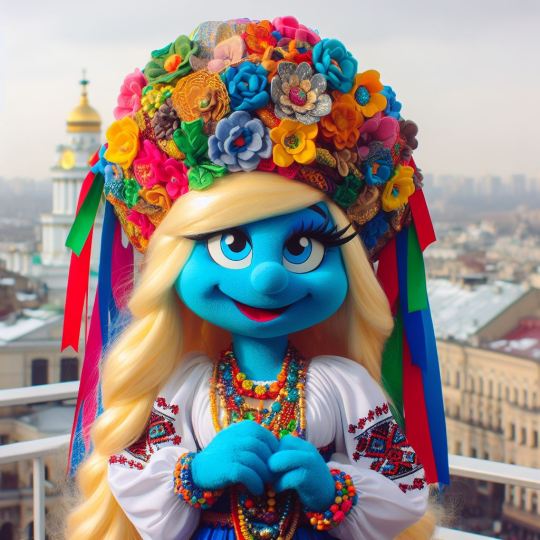

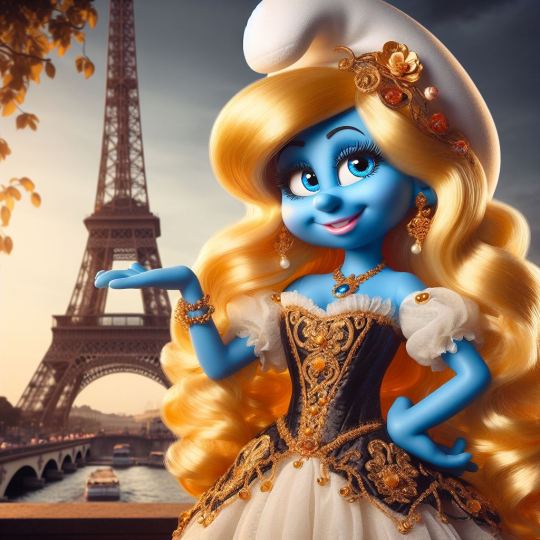

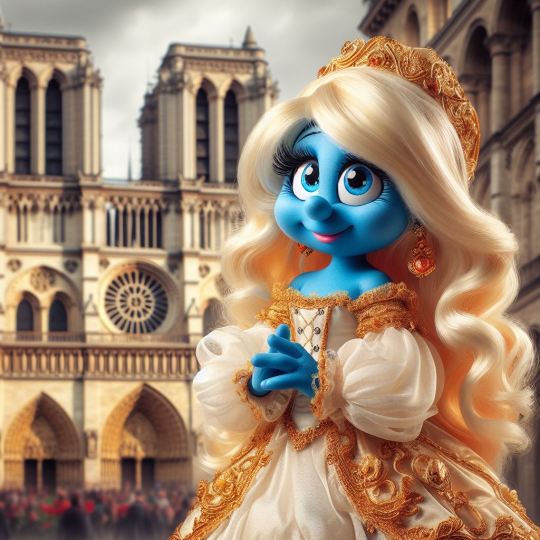
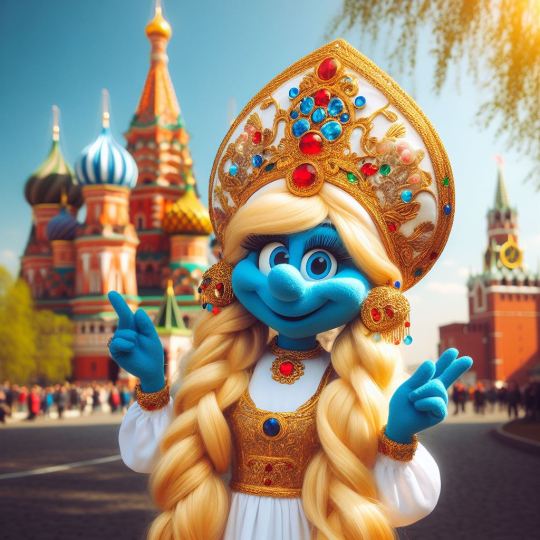
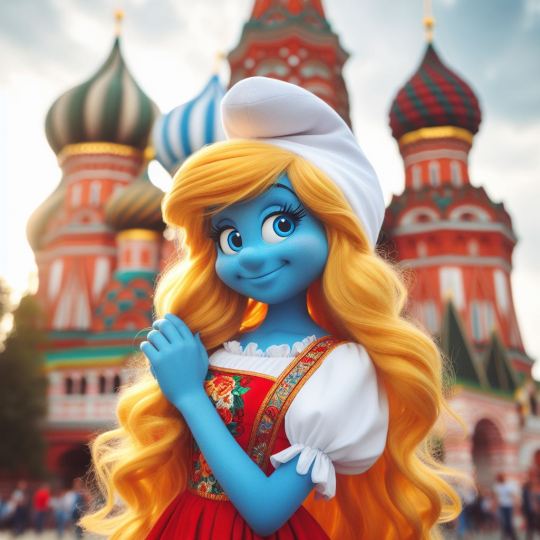
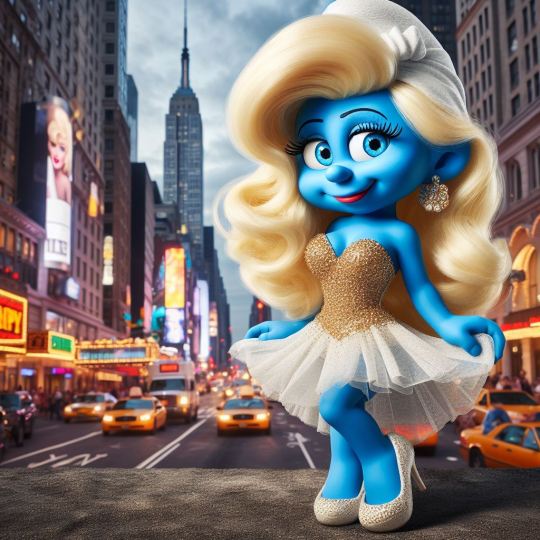
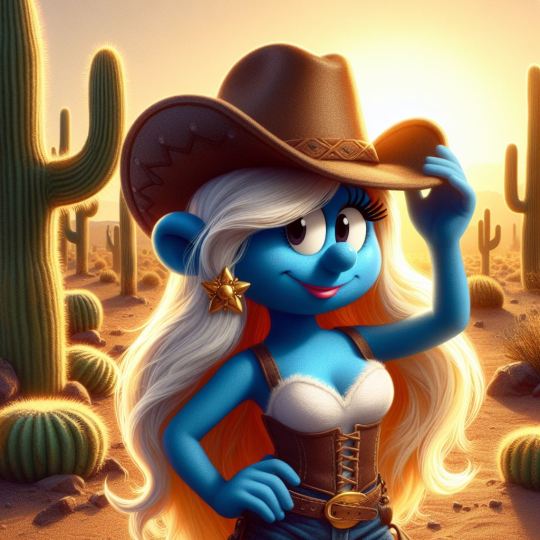
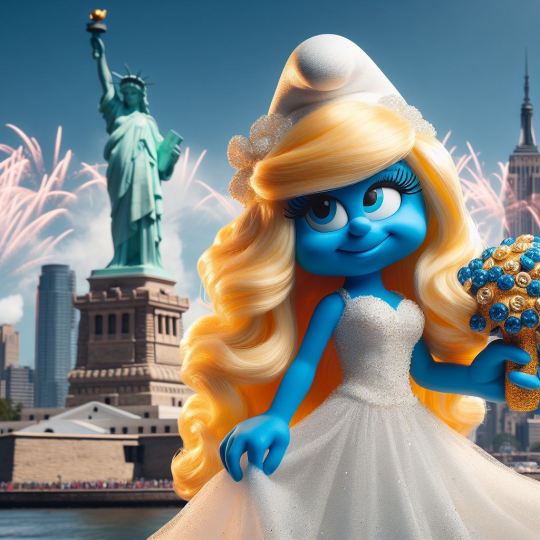
Национальные Смурфетки 2 часть
Украина(2 шт.), Франция(3 шт), Россия(2 шт), Америка (3 шт).
(сделано с помощью ИИ)
-----------------
National Smurfettes 2 part
Ukraine(2 pcs.), France(3 pcs.), Russia(2 pcs.), America(3 pcs.).
(made with AI)
#топ#top#смурфики#the smurfs#смурфетта#smurfette#национальности#nationality#арт#фан арт#art#fan art#ии#ai#нейросеть#neural network#✨#украина#франция#россия#америка#ukraine#france#russia#america#европа#europe#🌎#🌍
15 notes
·
View notes
Text

hello europeans is this true
16 notes
·
View notes
Text

After much research, I finally found out where all of the princesses are from. Here are my notes…
Snow White: Snow White was first published in Germany by the Brothers Grimm, in 1812, in their book Grimm's Fairy Tales. Because of this I assume the Disney version is from Germany.
Cinderella: Cinderella takes place in France and it is based on the French fairy tale by Charles Perrault, it says so in the credits. More proof is that all of the the women at the ball have French names and Cinderella’s house is referred to as Château.
Aurora: The French symbol the Fleur-de-lys can be found everywhere in the castle and in the credits. Plus, in the credits it says the movie is based on the Charles Perrault version of Sleeping Beauty.
Ariel: Ariel is from Atlantica which is a kingdom that is located somewhere in the Mediterranean Sea. This is confirmed by Disney and the creators of the Little Mermaid even stated that Eric’s kingdom takes Mediterranean countries as inspiration for the setting. Though it is not specified which Mediterranean region inspired it, Disney Wiki says possibly Southern Mediterranean basin. They did mention on the official Disney Princess YouTube channel that it takes place in Italy though.
Belle: France. It says so in the movie.
Jasmine: Ron Clements and John Musker, the directors of the film said that the movie was originally intended to be set in Baghdad, Iraq. However, it was changed to the fictional city of Agrabah during production due to the Gulf War of 1990–91. Agrabah is an adaptation of Baghdad.
Pocahontas: USA... says so in the movie “In sixteen hundred seven We sail the open sea For glory, God, and gold And the Virginia Company”.
Mulan: China. Says so in the movie.
Tiana: The movie says that it takes place in New Orleans.
Rapunzel: The movie is based on the Brothers Grimm version of the fairy tale. Rapunzel’s dress is loosely based on the traditional German dress "dirndl", but with a longer skirt. For these reasons I decided on Germany, even though it does take inspiration from other European countries, especially Mont Saint-Michel in France.
Merida: Scotland. Says so in the movie.
Moana: I guessed Samoa because she wears a Samoan-inspired ceremonial dress at one point in the movie. The song “We Know the Way” features more lyrics in Samoan than other Polynesian languages, and Motunui, the fictional island of the film, mostly drew inspiration from elements of the real-life island nations of Fiji, Samoa, and Tonga.
Anna and Elsa: Arendelle was based on multiple locations in Norway. The team behind Frozen visited Norway to gain inspiration, and you can see Nordic influence all throughout the movie.
Raya: It's difficult to figure out one specific country since Kumandra is based on multiple Southeast Asian countries.
#disney#disney princess#snow white#cinderella#snow white and the seven dwarfs#sleeping beauty#nationality
20 notes
·
View notes
Note
So if you were born on eridanus ii, what nationality does that make you...?
People born on member colony worlds are citizens of the UEG.
13 notes
·
View notes
Text
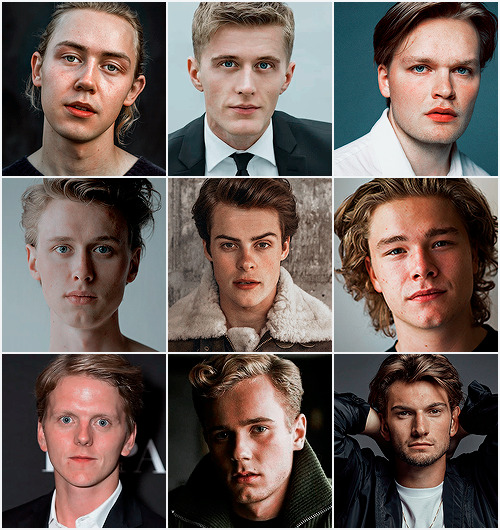
[ NORWEGIAN MALE FCS ] - PART 1.
Arthur Hakalahti (1995)
Axel Bøyum (1995)
David Stakston (1999) - Born in U.S.A | Norwegian-American
Henrik Holm (1995)
Herman Tømmeraas (1997)
Jonas Hoff Oftebro (1997)
Jonas Strand Gravli (1991)
Tarjei Sandvik Moe (1999)
Thomas Hayes (1997)
#norwegian#norwegian fc#norwegian male#norwegian fcs#norwegian male fcs#ethnicity#ethnicity fc#nationality#nationality fc#arthur hakalahti#Axel Bøyum#david stakston#henrik holm#herman tommeraas#jonas hoff oftebro#jonas strand gravli#tarjei sandvik moe#thomas hayes
63 notes
·
View notes
Text
I remember when I did Dominance, which was a project about the two identities of Sudan: the Afro/Arab identity. I felt that there was a huge difference between the Arab identity and the African identity. Something that was very obvious to me was that those with an Arab identity always had the privilege of being on the ‘Arab side’. Although they were officially black, because they were Arab, they didn’t feel that there was this huge divide – but, I felt it, because I’ve always had people commenting on my dark skin-tone in a negative way, or commenting on my hair, saying it is not “good hair”, that my skin-tone is “too dark.” And that I was “too African” to be Sudanese! I was once in Kassala Airport wanting to go back to Khartoum, the guy in the counter refused to let me get on the plane, because he insisted that I wasn’t Sudanese even though I was holding out my Sudanese passport and talking in plain Arabic to him. This is an experience, like many other experiences in my life that drive me to talk about discrimination, no matter what kind of discrimination it is. I cannot think of anything I have done, or written about, or drawn, or created in any way, that was not influenced by my experience. It is easy to be kind of general, and talk about “being black”, but there is a specific thing about being a Black Sudanese, or being a dark-skinned black, or a dark-skinned black with an afro.
Enas Satir
Source: Hannah Robathan - The Satir Sisters: two artists inspiring change through illustration (Shado Magazine, April 5, 2019)
10 notes
·
View notes
Quote
Nationalism is so beautiful for nationalists. At the same time, you are really opposed to the unification of the world.
Mwanandeke Kindembo
#Mwanandeke Kindembo#thepersonalquotes#nation#Time#World#timing#nationality#Beauty#quotes#literature#lit#prose#life quotes
18 notes
·
View notes